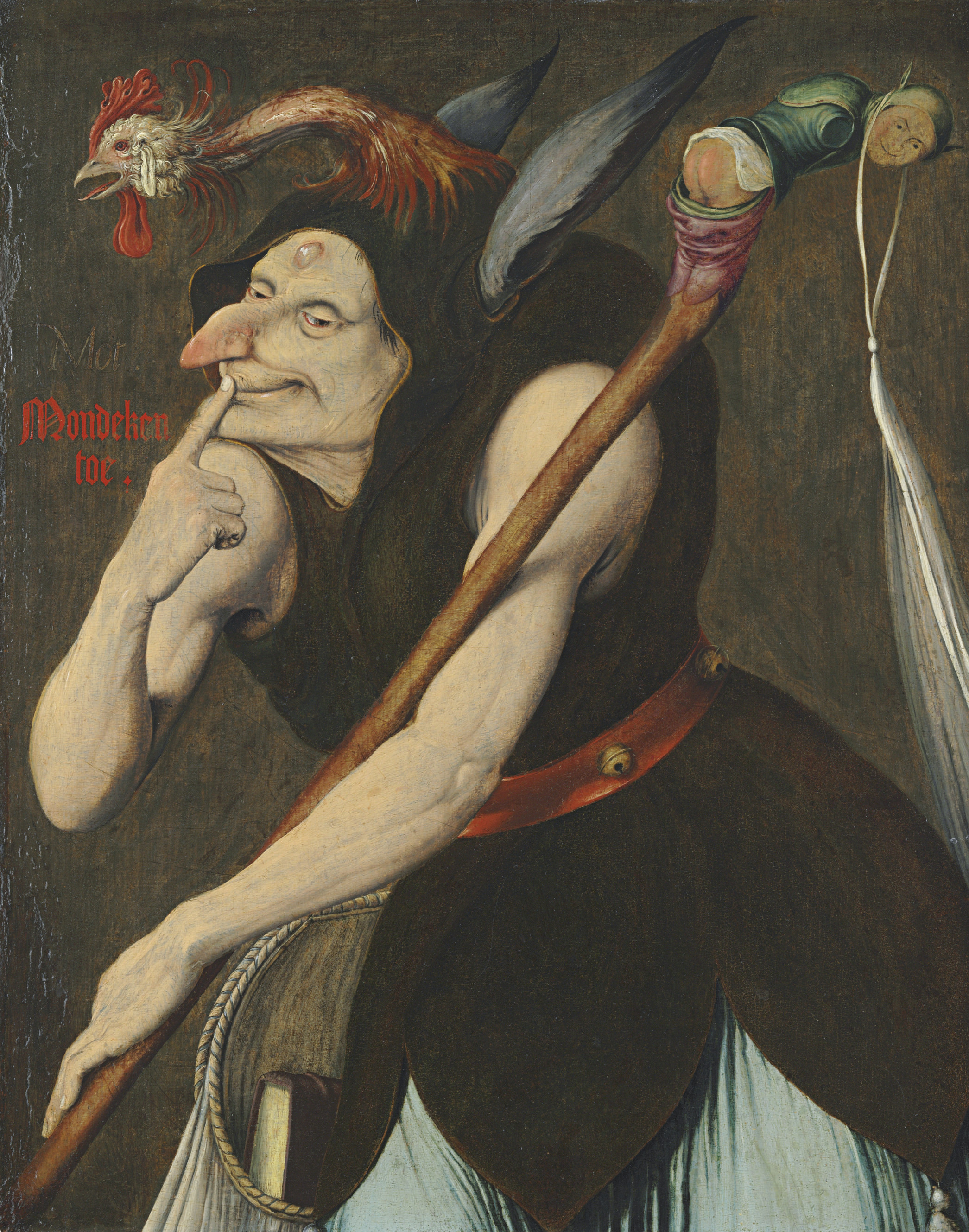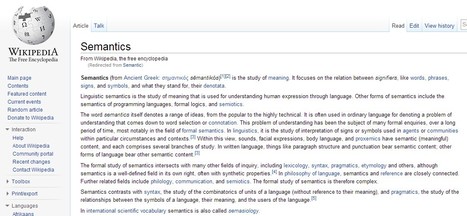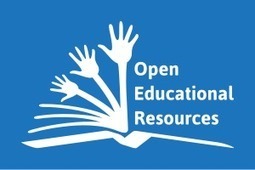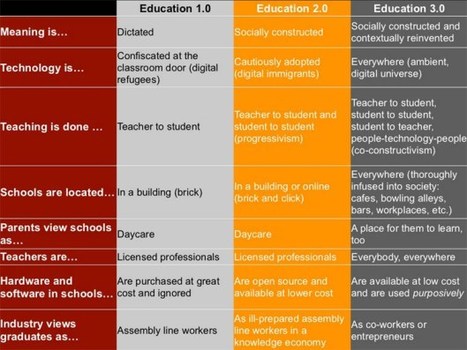 Your new post is loading...
 Your new post is loading...

|
Scooped by
Gust MEES
|
Carlo Maria Cipolla, an economic historian, is famous for his essays about human stupidity, such as "The Basic Laws of Human Stupidity". He viewed stupid people as a group, more powerful by far than major organizations such as the Mafia and the industrial complex, which without regulations, leaders or manifesto nonetheless manages to operate to great effect and with incredible coordination.
Stupidity is a quality or state of being stupid, or an act or idea that exhibits properties of being stupid.[6] In a character study of "The Stupid Man" attributed to the Greek philosopher Theophrastus (c. 371 – c. 287 BC), stupidity was defined as "mental slowness in speech or action". The modern English word "stupid" has a broad range of application, from being slow of mind (indicating a lack of intelligence, care or reason), dullness of feeling or sensation (torpidity, senseless, insensitivity), or lacking interest or point (vexing, exasperating). It can either imply a congenital lack of capacity for reasoning, or a temporary state of daze, or slow-mindedness.
In Understanding Stupidity, James F. Welles defines stupidity this way: "The term may be used to designate a mentality which is considered to be informed, deliberate and maladaptive." Welles distinguishes stupidity from ignorance; one must know they are acting in their own worst interest. Secondly, it must be a choice, not a forced act or accident. Lastly, it requires the activity to be maladaptive, in that it is in the worst interest of the actor, and specifically done to prevent adaption to new data or existing circumstances."[7] Learn more / En savoir plus / Mehr erfahren: http://www.scoop.it/t/21st-century-learning-and-teaching/?&tag=Character http://www.scoop.it/t/21st-century-learning-and-teaching/?&tag=Growth+Mindset

|
Scooped by
Gust MEES
|
Das Wort Satire entstammt dem lateinischen satira, das wiederum aus satura lanx hervorgeht und ‚mit Früchten gefüllte Schale' bedeutet. Im übertragenen Sinn lässt es sich mit ‚bunt gemischtes Allerlei' übersetzen. In früherer Zeit wurde Satire fälschlicherweise auf zurückgeführt, daher die ältere Schreibweise Satyra.
Satire ist eine Kunstform, mit der Personen, Ereignisse oder Zustände kritisiert, verspottet oder angeprangert werden. Typisches Stilmittel der Satire ist die Übertreibung. In der älteren Bedeutung des Begriffs war Satire lediglich eine Spottdichtung, die Zustände in sprachlich überspitzter und verspottender Form thematisiert. Historische Bezeichnungen sind auch Spottschrift, Stachelschrift und Pasquill (gegen Personen gerichtete satirische Schmähschrift).

|
Scooped by
Gust MEES
|
Electronic circuit simulators distributed under a free software license are available from several sources and for several computing platforms.

|
Scooped by
Gust MEES
|
Sarkasmus bezeichnet beißenden, bitteren Spott und Hohn, in der Literatur oft in Form der Satire oder - verschärft - der Polemik angewandte Form der Kritik an gesellschaftlichen Gegebenheiten unterschiedlicher Art. Sarkasmus ist ein latinisiertes griechisches Substantiv (σαρκασμός sarkasmós „die Zerfleischung, der beißende Spott", von altgriechisch sarkazein „sich das Maul zerreißen, zerfleischen, verhöhnen", von σάρξ sarx „das (rohe) Fleisch").
Da die Absicht eines Spottes nur dem Spötter selbst bekannt ist, ist eine Unterscheidung von außen äußerst schwierig. Den Begriffen gemeinsam ist die Tatsache, dass der Angreifer weniger Gegenangriffsfläche bietet, als wenn er sachlich vorgehen würde.
Spott ist häufig offener und eindeutiger als Sarkasmus; letzterer ist oft subtiler und doppeldeutig. Deshalb kann mancher Sarkasmus z. B. ein diktatorisches Regime kritisieren, ohne dass der Absender der sarkastischen Nachricht im Gefängnis landet.
Sarkasmus und Ironie[Bearbeiten | Quelltext bearbeiten]
Umgangssprachlich wird Sarkasmus oft als Form der Ironie betrachtet[6] oder Ironie als eine nette Variante und Sarkasmus demgegenüber als dem Angriff dienend aufgefasst, teilweise gar als Spott und Angriff streng von Ironie abgegrenzt.[7] Tatsächlich ist Ironie jedoch eine Technik, ein Mittel, etwas auszudrücken, während Sarkasmus eine bestimmte Absicht einer Aussage beschreibt, unabhängig von sprachlichen Mitteln, mit denen sie formuliert wurde. Ironie bezeichnet Aussagen, die als das Gegenteil des tatsächlich Gemeinten formuliert werden; dies kann zum Schutz des Sprechers verhüllend sein oder die Aussage verstärken. Sarkasmus ist bitterer, beißender Spott – unabhängig davon, wie das Gemeinte ausgedrückt wird, ob direkt oder indirekt mittels Ironie.
Für Arthur Schopenhauer ist Ironie objektiv. Sie verweist durch Über- oder Untertreibung auf die Kehrseite, wobei sie die Ianusnatur der Erscheinungen humorvoll gelten lässt. Sarkasmus dagegen ist einseitig; seine Fokussierung der Kehrseite zielt auf Vernichtung.
Learn more / En savoir plus / Mehr erfahren: http://www.scoop.it/t/21st-century-learning-and-teaching/?tag=Irony http://www.scoop.it/t/21st-century-learning-and-teaching/?tag=Rhetorik

|
Scooped by
Gust MEES
|
Symbiosis (from Greek σύν "together" and βίωσις " living") is close and often long-term interaction between two different biological species. In 1877 Albert Bernhard Frank used the word symbiosis (which previously had been used to depict people living together in community) to describe the mutualistic relationship in lichens.
Click here to edit the content

|
Scooped by
Gust MEES
|
In the society that Orwell describes, everyone is under complete surveillance by the authorities, mainly by telescreens. The people are constantly reminded of this by the phrase "Big Brother is watching you", which is the core "truth" of the propaganda system in this state. Since the publication of Nineteen Eighty-Four, the term "Big Brother" has entered the lexicon as a synonym for abuse of government power, particularly in respect to civil liberties, often specifically related to mass surveillance.

|
Scooped by
Gust MEES
|

|
Scooped by
Gust MEES
|
Open Educational Resources (OER) are digital materials that can be re-used for teaching, learning, research and more, made available free through open licenses, which allow uses of the materials that would not be easily permitted under copyright alone.[1] As a mode for content creation and sharing, OER alone cannot award degrees nor provide academic or administrative support to students.[2][3] However, OER materials are beginning to get integrated into open and distance education.[4] Some OER producers have involved themselves in social media to increase their content visibility and reputation.[5] Read more: http://en.wikipedia.org/wiki/Open_educational_resources
|

|
Scooped by
Gust MEES
|
A feature of satire is strong irony or sarcasm-"in satire, irony is militant"-but parody, burlesque, exaggeration, juxtaposition, comparison, analogy, and double entendre are all frequently used in satirical speech and writing. This "militant" irony or sarcasm often professes to approve of (or at least accept as natural) the very things the satirist wishes to attack.
A feature of satire is strong irony or sarcasm—"in satire, irony is militant"[2]—but parody, burlesque, exaggeration,[3] juxtaposition, comparison, analogy, and double entendre are all frequently used in satirical speech and writing. This "militant" irony or sarcasm often professes to approve of (or at least accept as natural) the very things the satirist wishes to attack. Learn more / En savoir plus / Mehr erfahren: http://www.scoop.it/t/21st-century-learning-and-teaching/?&tag=Satire

|
Scooped by
Gust MEES
|
Ein Dilettant ( italienisch dilettare aus lateinisch delectare „sich erfreuen", „ergötzen") ist ein Liebhaber einer Kunst oder Wissenschaft, der sich ohne schulmäßige Ausbildung und nicht berufsmäßig damit beschäftigt. Als Amateur oder Laie übt er eine Sache um ihrer selbst willen aus, also aus Interesse, Vergnügen oder Leidenschaft und unterscheidet sich somit von einem Fachmann.
In der heutigen Umgangssprache werden die Begriffe ‚Dilettant‘ und ‚dilettantisch‘ abwertend verwendet. Eine dilettantisch ausgeführte Tätigkeit wird dann gleichgesetzt mit: unfachmännisch, unsachgemäß, fehlerhaft, stümperhaft oder oberflächlich ausgeführt. Häufig wird auch das in seiner ursprünglichen Bedeutung fast gleichbedeutende Wort Amateur verwendet.
In der Neuzeit hat sich eine Synthese beider Begriffsdeutungen ergeben. Dilettantismus ist die Unfähigkeit, niedere Problemstellungen zu begreifen und sie in geeigneter Weise zu bearbeiten. Aus diesem Grund wirkt das Handeln eines Dilettanten oftmals belustigend, was näher an der ursprünglichen Wortherkunft ist, als z.B. das Synonym "stümperhaft".

|
Scooped by
Gust MEES
|
Er trug Anfang der 1970er Jahre entscheidend zur Prägung des Begriffes Medienkompetenz bei. In früheren Schriften verwendete er den allgemeineren Begriff der Kommunikativen Kompetenz und stand dem Begriff der Medienkompetenz kritisch gegenüber, da er ihn als „leer" empfand. Er kritisierte, dass der Begriff nicht aussagt, was man sich unter Medienkompetenz konkret vorzustellen habe und wie man sie vermittele.

|
Scooped by
Gust MEES
|
A taboo is a vehement prohibition of an action based on the belief that such behavior is either too sacred or too accursed for ordinary individuals to undertake, under threat of supernatural punishment. Such prohibitions are present in virtually all societies.

|
Scooped by
Gust MEES
|
Particularly after the European Enlightenment, some works, such as Paradise Lost , were taken up by Romantics like Byron and described as presenting the biblical Satan as an allegory representing a crisis of faith, individualism, free will, wisdom and enlightenment.[citation needed ] Those works actually featuring Satan as a heroic character are fewer in number but do exist.
LaVey believed that the ideal Satanist should be individualistic and non-conformist, rejecting what he called the "colorless existence" that mainstream society sought to impose on those living within it.[89] He praised the human ego for encouraging an individual's pride, self-respect, and self-realization and accordingly believed in satisfying the ego's desires.[90]He expressed the view that self-indulgence was a desirable trait,[91] and that hate and aggression were not wrong or undesirable emotions but that they were necessary and advantageous for survival.[92] Accordingly, he praised the Seven Deadly Sins as virtues which were beneficial for the individual.[93] The anthropologist Jean La Fontaine highlighted an article that appeared in The Black Flame, in which one writer described "a true Satanic society" as one in which the population consists of "free-spirited, well-armed, fully-conscious, self-disciplined individuals, who will neither need nor tolerate any external entity 'protecting' them or telling them what they can and cannot do."[94]

|
Scooped by
Gust MEES
|
Education 3.0 is a term that has been used to describe a level of transformative capabilities and practices for education in the 21st century. Professor Derek Keats, of the University of Witwatersrand in Johannesburg, South Africa,[1] and his co-author Jan Philipp Schmidt, FreeCourseWare Manager at University of the Western Cape, South Africa, used the term in 2007 to apply to the use and impact on education of collaborative and personalized learning, reusable learning content, and recognition of prior learning (RPL) whether by formal or informal means. Keats' explorations were focused on higher education.[2] Dr. John Moravec at the University of Minnesota broadens this view, and describes Education 3.0 as a product necessary to support what he labels "Society 3.0" - a near future paradigm of social co-constructivism, ambient technology, and propelled by continuous innovation at all levels of society.[3]

|
Scooped by
Gust MEES
|
Wikipedia:
Fuzzy logic is a form of many-valued logic or probabilistic logic; it deals with reasoning that is approximate rather than fixed and exact. Compared to traditional binary sets (where variables may take on true or false values) fuzzy logic variables may have a truth value that ranges in degree between 0 and 1. Fuzzy logic has been extended to handle the concept of partial truth, where the truth value may range between completely true and completely false.[1] Furthermore, when linguistic variables are used, these degrees may be managed by specific functions. The term "fuzzy logic" was introduced with the 1965 proposal of fuzzy set theory by Lotfi A. Zadeh.[2][3] Fuzzy logic has been applied to many fields, from control theory to artificial intelligence. Fuzzy logics however had been studied since the 1920s as infinite-valued logics notably by Łukasiewicz and Tarski; it is a popular misconception that they were invented by Zadeh.[4]:343
|




 Your new post is loading...
Your new post is loading...





















Lastly, it requires the activity to be maladaptive, in that it is in the worst interest of the actor, and specifically done to prevent adaption to new data or existing circumstances."[7]
Learn more / En savoir plus / Mehr erfahren:
http://www.scoop.it/t/21st-century-learning-and-teaching/?&tag=Character
http://www.scoop.it/t/21st-century-learning-and-teaching/?&tag=Growth+Mindset